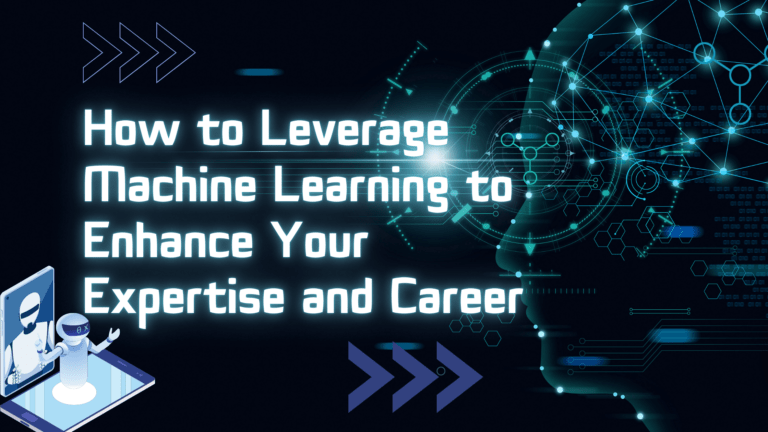In today’s dynamic world, machine learning can significantly accelerate your career and open up numerous opportunities in the tech sector. Enrolling in a reputable, career-focused machine learning course is an excellent way to transition into innovative roles. These AI and Machine Learning Course are designed for tech professionals, enhancing effectiveness and efficiency in current roles while supporting entrepreneurial aspirations.
Read Also: Top 10 Advantages and Disadvantages of Artificial Intelligence
These programs, taught by highly regarded academics, provide extensive peer-learning possibilities, broaden technical expertise, strengthen professional networks, and keep you on the leading- edge of industry breakthroughs. Embracing machine learning through organized learning ensures your continued relevance and accomplishments in the constantly evolving technological environment.
Table of Contents
Components of Machine Learning
The machine learning algorithm consists of three primary components:
1. Decision Process:
Machine learning algorithms are designed to make predictions or classifications. They operate based on input data, which can be labelled or unlabeled. The algorithm generates an estimate of a pattern within the data, which is the foundation for subsequent decisions.
2. Error Function:
The error function is crucial in evaluating the model’s predictions. It compares the model’s output against known examples to assess its accuracy. This comparison highlights discrepancies between the predicted outcomes and the actual results. An accurate error function is essential for reliable model assessment.
3. Model Optimization Process:
The decision process, error function, and model optimization process are fundamental components working in tandem. These elements refine the model’s predictions and ensure its reliability. This continuous enhancement process allows machine learning algorithms to become increasingly precise. Consequently, they deliver more accurate and dependable outputs, driving advancements in AI applications across various domains.
Read Also: Machine Learning and AI: Identifying Differences and Similarities
Selecting the Right Machine Learning Algorithm
Selecting a suitable machine learning algorithm involves various factors. These include data size, quality, and diversity, as well as the business objectives derived from that data. Additional considerations include accuracy, training time, parameters, and data points. Choosing the correct algorithm is a combination of business needs, specifications, experimentation, and available time. Data scientists must evaluate different algorithms to identify the optimal one for their specific use case. This process involves testing, validation, and refinement to ensure the chosen algorithm meets the desired performance metrics and business goals.
Everyday Machine Learning: Enhancing Daily Life with ML
Here are some practical applications of machine learning that you may encounter daily:
1. Speech Recognition:
Speech-to-text capability utilizes natural language processing (NLP) to convert human speech into written text. Many mobile devices integrate speech recognition to facilitate voice searches, such as Siri, and to enhance accessibility for texting. This technology is invaluable for improving user interaction and accessibility on various platforms.
2. Customer Service:
Online chatbots are increasingly replacing human agents along the customer journey, transforming customer engagement on websites and social media platforms. Chatbots handle frequently asked questions (FAQs) about topics like shipping, provide personalized advice, and recommend products or sizes. These virtual agents are prevalent on e-commerce sites, messaging platforms like Slack and Facebook Messenger, and in the functions of virtual assistants and voice assistants.
Read Also: 10+ Best Tips to Revolutionize IT Operations with Artificial Intelligence
3. Computer Vision:
This AI technology enables computers to extract meaningful information from digital images, videos, and other visual inputs and subsequently take appropriate actions. These include photo tagging on social media, medical image analysis in healthcare, and the navigation systems of autonomous vehicles.
4. Recommendation Engines:
By analyzing past consumption behavior data, AI algorithms can uncover data trends to develop effective cross-selling strategies. Online retailers use recommendation engines to suggest relevant products to customers during the checkout process, enhancing the shopping experience and increasing sales. These engines personalize recommendations, improving customer satisfaction and loyalty.
5. Robotic Process Automation (RPA):
Also known as software robotics, RPA employs intelligent automation technologies to execute repetitive manual tasks. By automating routine processes, this technology streamlines operations, reduces errors, and increases efficiency.
6. Automated Stock Trading:
AI-driven high-frequency trading platforms optimize stock portfolios by executing thousands or even millions of trades per day without human intervention. These platforms analyze market data and execute trades at lightning speed, capitalizing on market opportunities that may only exist for fractions of a second. Automated trading systems improve market liquidity and efficiency while reducing the emotional biases of human traders.
7. Fraud Detection:
Banks and financial institutions leverage machine learning to detect suspicious transactions. Supervised learning trains models using information about known fraudulent activities, while anomaly detection identifies transactions that appear atypical and warrant further investigation. This technology enhances security by continuously monitoring and analyzing transaction data to prevent fraud and protect customers. From enhancing user experiences and customer service to improving security and operational efficiency, machine learning drives innovation and transformation across multiple industries.
Read Also: 5 Ways Businesses Can Adopt Artificial Intelligence(AI)
Conclusion
Enrolling in a reputable, career-vetted AI ML Course is an excellent way to transition effortlessly into innovative ML roles. These programs are meticulously designed with working tech professionals in mind. They aim to enhance and empower your effectiveness and efficiency in your current job role. Furthermore, they provide a structured pathway for individuals looking to reshape their entrepreneurial aspirations. You will gain substantial expertise in the deep-tech industry, equipping you with the knowledge and skills to excel in the field.
Engaging in a structured machine learning program not only broadens your technical abilities but also enriches your professional network. Exposure to cutting-edge technologies and methodologies ensures that you remain at the forefront of industry advancements. In conclusion, embracing machine learning through a well-structured course can be a pivotal step in your professional development. It equips you with the necessary tools to thrive in the tech sector, enhances your current job performance, and opens doors to new and exciting career opportunities.









